SAS: Rogue Heroes ending explained: Everything that happened in the finale of the hit BBC show, and what happened to David Stirling after his capture?
Season 1 of the show went out in style
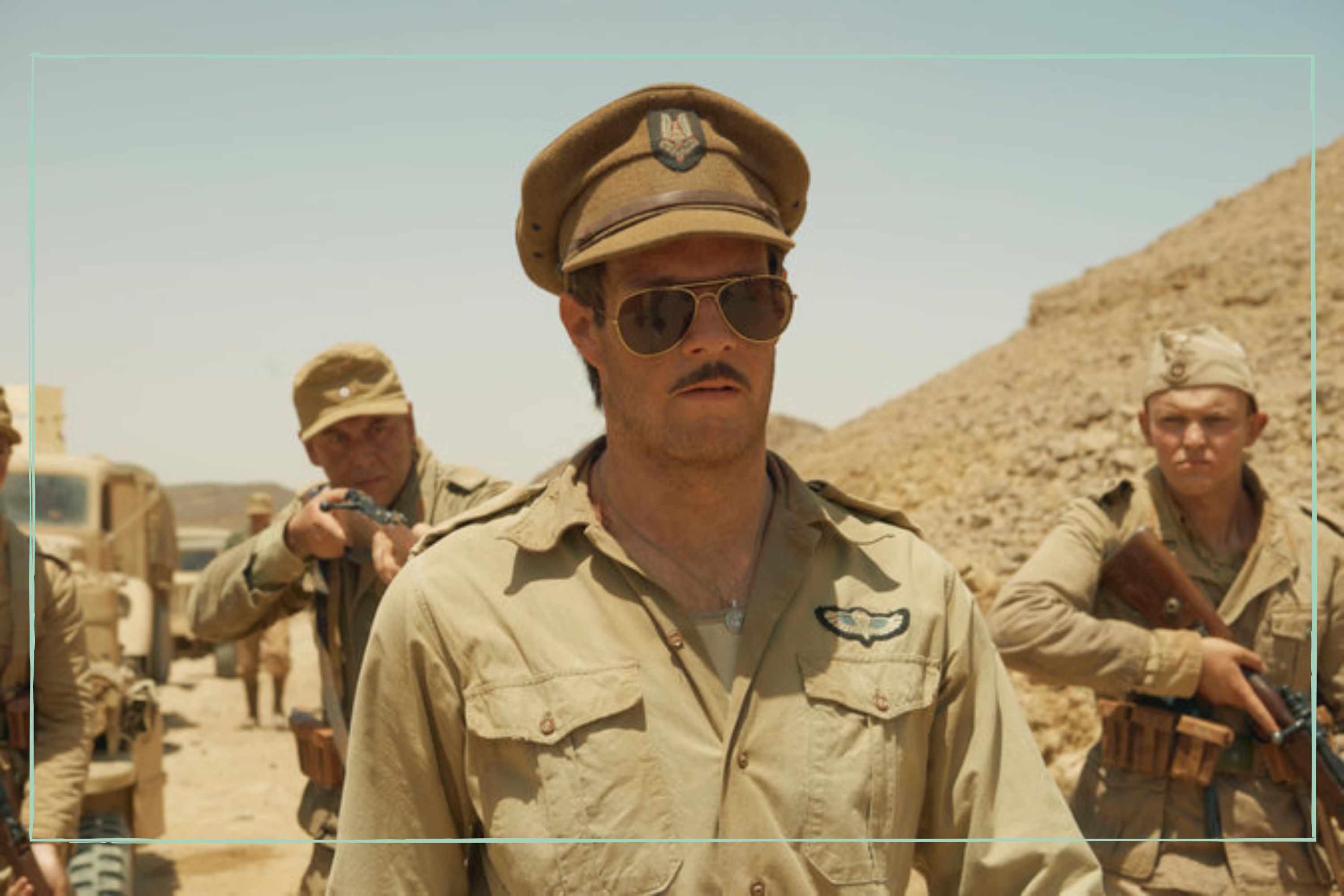

Everything that went down in the epis season finale, plus the real story behind David Stirling’s capture - and what this meant for the SAS.
SAS: Rogue Heroes certainly delivered everything it promised, and the riotous drama has been a runaway success with critics and audiences alike. Steven Knight has shone a light on the origin true story of the Special Air Service (SAS) unit and the impact it had on World War II, like no other series - taking inspiration from Ben Macintyre’s bestselling book of the same name, and giving it a fresh spin for audiences that wouldn’t otherwise know how the unit came into existence. A scene stealing Jack O’Connell brought the enigmatic Paddy Mayne to life brilliantly, while viewers were left shocked that Alfie Allen’s Jock Lewes met an early demise halfway through the action. The show’s cliffhanger focussed on SAS founder David Stirling - read on for the true story behind his capture, and what this could mean for a possible second season of the hit drama.
SAS: Rogue Heroes filmed across some hot and dusty locations, leaving fans asking exactly where the crews set up to shoot the action - we reveal where filming took place, along with some behind the scenes footage. Also popular on the BBC, Emily Blunt drama The English filmed in places very different to where the series is set, and we have inside information on these locations. Fans of the show also want to know if The English is based on a true story, and the answer from the show's writer is an interesting one.
SAS: Rogue Heroes: Ending explained
The SAS: Rogue Heroes season finale opens with a wounded David Stirling in Cairo, being tended to by love interest Eve Mansour.
It’s 1942, and while Eve cleans his wounds, Stirling recalls hearing that Tobruk had fallen before he became injured and fell. The result of this knowledge is that he’d taken himself off to the Empire Club, to get very drunk. While there, he jumped onto a table to announce to everyone present that he loves Eve, something he has no recollection of until she reminds him when he’s sobred up. While Stirling grapples with his feelings for Eve, she moves on to the pressing task of advising him about what to do during his scheduled meeting with Prime Minister Winston Churchill.
Audiences next see Stirling at the meeting with the Prime Minister (played by Jason Watkins), who introduces Stirling as the famous Phantom Major. While with the Prime Minister, Stirling also meets General Auchinleck, and Field Marshal Jan Smuts - the Prime Minister of South Africa. After briefly and politely discussing his desert sores with the men, he finally gets the Prime Minister alone. Churchill asserts the SAS and their particular brand of attack are needed now more than ever, admitting it was Auchinleck’s caution that led to Tobruk falling and Rommel getting within 50 miles of Alexandria.
The pair realise Malta is now the last hope in preventing the war being lost - although repeatedly attacked, the country is yet to surrender. Churchill outlines how imperative it remains that Malta is saved, offering Stirling free rein to make this happen by any means. He also suggests sending convoys of supplies from Gibraltar and Alexandria as a way of assistance. Stirling is told that should they succeed, Churchill would recommend to the army council that the SAS become a regiment, with Stirling as Commanding Officer. Before Stirling leaves, Churchill tells him to do whatever it takes to achieve the mission. Producing forms that presumably give permission for Stirling to do just that, he asks the Prime Minister to sign them, under the pretence he’s asking for an autograph to remember the day by.
GoodtoKnow Newsletter
Parenting advice, hot topics, best buys and family finance tips delivered straight to your inbox.
Reinvigorated and back at the SAS camp, Stirling tells the other men they’re under new instruction from Chruchill, and to get naked. The reason they’re asked to remove their clothes is that most are suffering from desert sores, and Dr. Gamal is there to treat them and see they’re fit for the next mission. Stirling informs them that ⅓ of them won’t return from the mission - to simultaneously attack six air bases along the Mediterranean coast. The plan is to take a submarine to reach Crete, where extra jeeps supplied by Churchill will be waiting for them. Paddy Mayne immediately begins a rivalry with Andre Zirnheld over who will destroy the most planes. Paddy reiterates his lack of trust in native German-turned-SAS-member Walter Essner, saying he’ll be keeping a gun close by if he’s to cross enemy lines with the actual enemy.
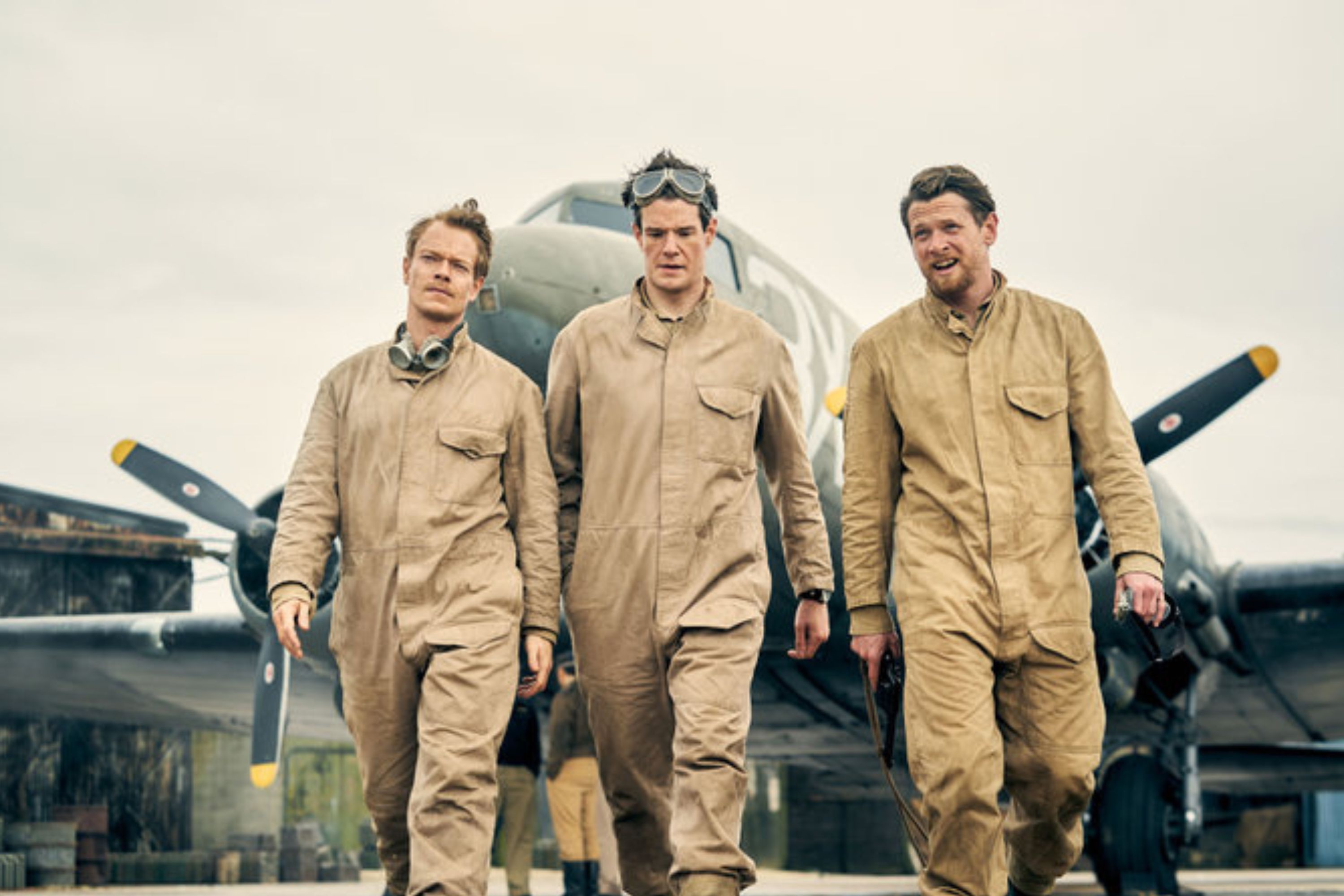
The German speaking factions of the group are charged with getting the French soldiers through an Italian checkpoint to get to Crete, instead of arriving by submarine - the native Germans will drive and the French are to pose as prisoners of war to get through. The guards allow them through and relieved, they begin preparing the fuses on the bombs, with only half an hour to go before reaching the Derna airstrip. However, events go horribly wrong when the jeep they are travelling in starts to break down and Essner tells them the engine is misfiring and he needs to stop and fix it. At a German camp, he leaves the others in the truck, who begin to feel threatened and cut themselves free of the ropes binding them as they pretended to be captives. The men suddenly notice that Bruckner is missing, and they’re approached by a group of soldiers alongside Bruckner. Bruckner has sold them out, and sided with the Germans - he shoots and kills Essner.
Bruckner tells Augustin that it’s all over, and he will warn every airfield in the Mediterranean that an attack is imminent - Malta will fall and Africa will serve the Third Reich. Marc is left in the truck, and Augustin tells him to get out and be courageous - he knows their entire faction are about to be shot and killed. Instead, Marc sets off the explosives, but this not only kills the German soldiers, but also the entire remaining members of his own regiment - only Augustin manages to flee to safety. In Crete, the attack is still able to go ahead as planned, and David is pleased to tell Paddy once it’s over, that he destroyed 15 Stukas and 18 Messerschmitts.
When Augustin arrives back at camp and tells the others what happened to the rest of the French soldiers, Paddy admits he was wrong about Essner, as it was Bruckner that was the traitor. Taking a break after the mission back in Cairo, Stirling meets with Dudley. He imparts the tragic news that Eve was flown to Alexandria on the orders of General De Gaulle, and her plane had gone down on her return - she is missing presumed dead. A devastated Stirling says that everything he touches disappears, and soon leaves to return to the desert camp.
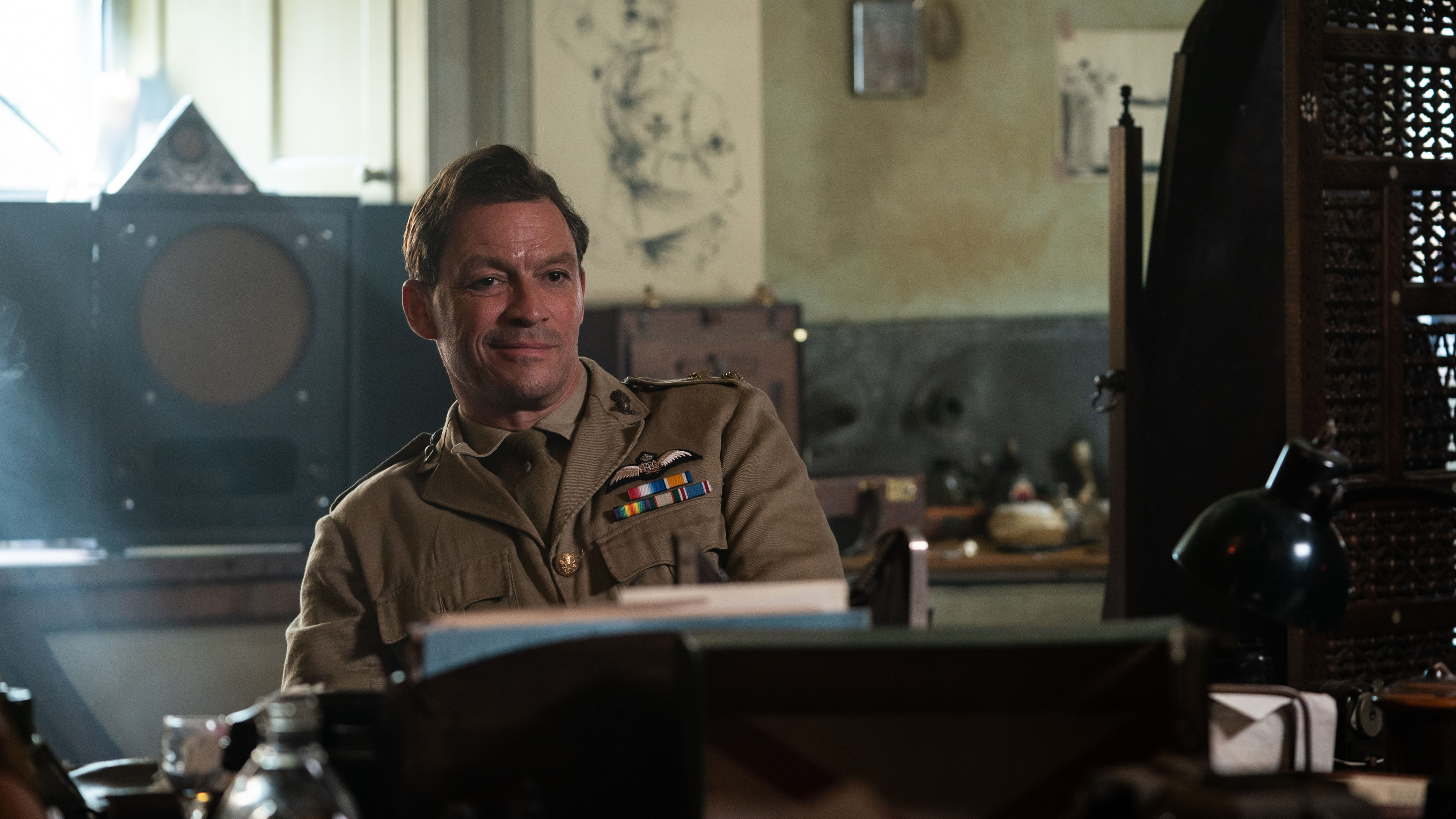
On his way back to the camp at Gabes Gap, Stirling finds himself surrounded by German soldiers. He opens fire, while they tell him to surrender. Running out of rounds, he pulls out a handgun, and it appears he won’t surrender - if he fired from his handgun, the Germans would’ve shot and killed him. Rethinking his position, Stirling lowers his gun and chooses to surrender, rather than be killed. Back at the camp, a letter has arrived from GHQ, telling the remaining members of the SAS what will happen now Stirling has been captured. It turns out Paddy has been put in charge of the entire regiment - who really are now a recognised regiment. Paddy swaggers towards the camera in the closing moments, wielding his gun and asserting that “blood will flow” now he’s in charge.
What happened to David Stirling after his capture?
David Stirling was captured in January 1943 in Tunisia, and spent the remainder of the war in prisoner of war camps.
When first incarcerated in the camps, he managed to escape four times, before transferred to the infamous Colditz Castle prison camp. Unable to escape from Colditz, he spent the remainder of the war there, before being liberated when the war ended. The Castle had been converted to a prisoner of war camp when World War II broke out, and was specifically a high security camp for officers deemed security or escape risks, or thought to be particularly dangerous. Situated on a rocky outcrop above the River Mulde, it was considered an ideal site for a high security prison.
Initially, the camp housed prisoners from many different countries, including Poland, France, Belgium, the Netherlands, and Canada. However, from May 1943, it only housed British and American officers. Although considered a high security prison, it actually had a strong record of successful escape attempts. This angered the Germans, who considered the camp to be escape proof. It did elude David Stirling, who was unable to free himself from there once incarcerated there.
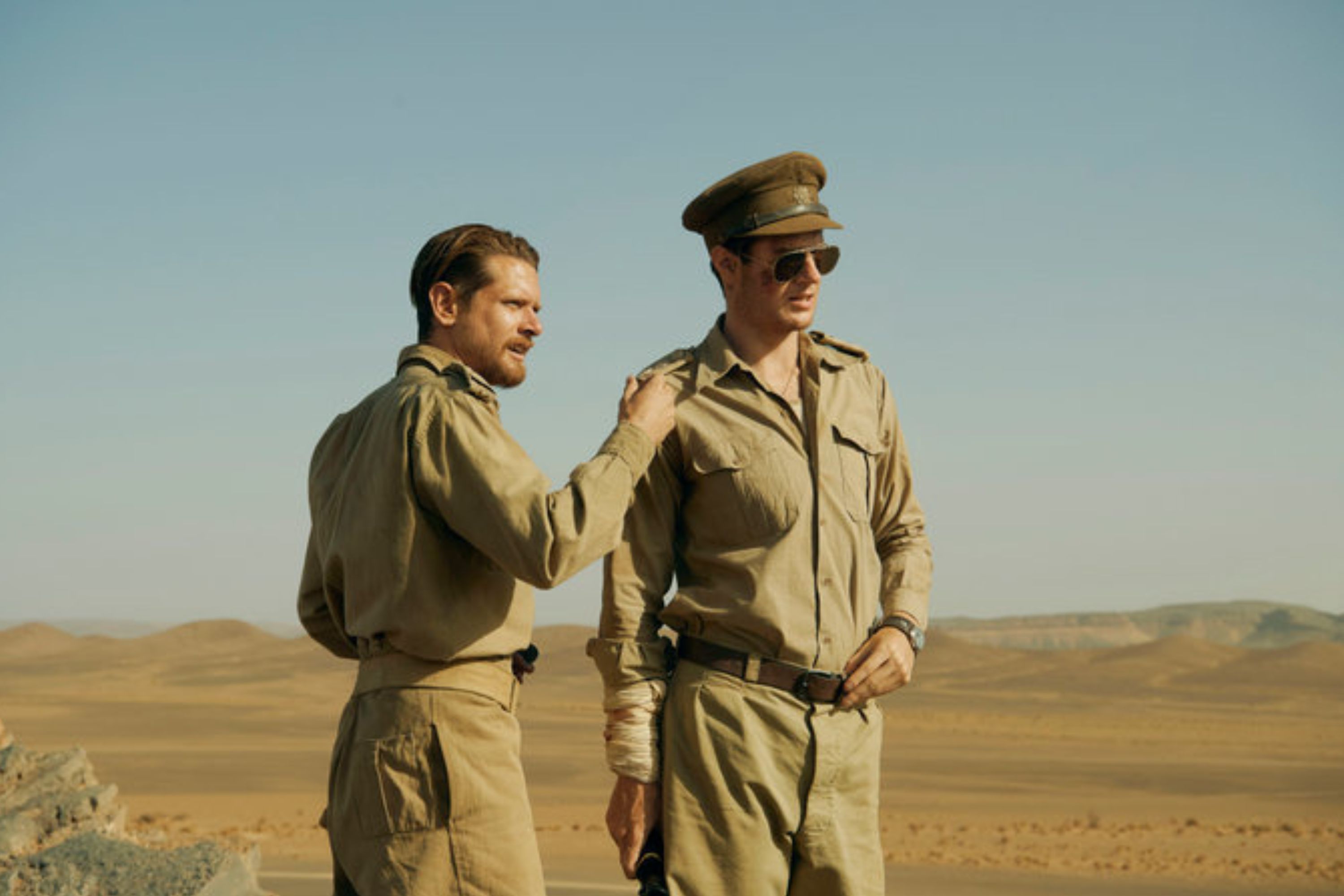
What happened to David Stirling after the war?
After the war, David Stirling transferred to the Regular Army Reserve of Officers in 1947, in the honorary rank of lieutenant-colonel. He also founded the Capricorn Africa Society, campaigning against racial discrimination in Africa.
He held the rank of lieutenant-colonel until his retirement in 1965, and was appointed an Officer of the Order of the British Empire in recognition of gallant and distinguished service in 1946. He Founded the Capricorn Africa Society in 1949, while Africa was still under colonial rule. However, educated Africans were divided on the movement, and it was eventually found the society's attempt to deal with social development and racism, was ineffective. Stirling resigned from his position as the society's chairman, in 1959.
He was appointed a Knight Bachelor in the 1990 New Year Honours for services to the military, and he passed away in November of the same year. In 2002, a statue of Stirling standing on a rock was unveiled on the Hill of Row, near his family's estate at Park of Keir. His nephew Archie Stirling is the current Laird of the Keir estate - he is a millionaire businessman and former Scots Guards officer.
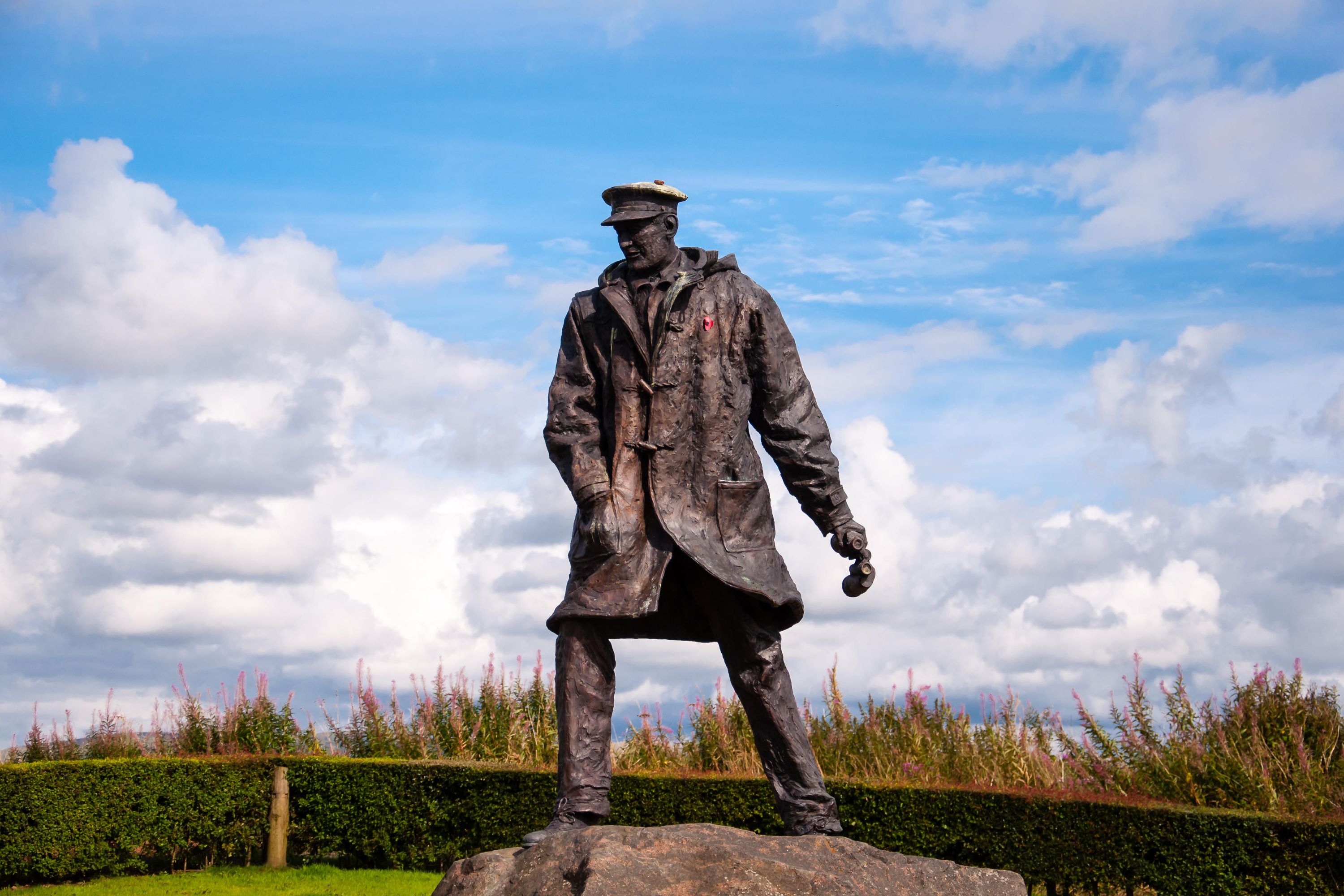
What happened to the SAS after Stirling was captured?
The SAS really did fall under the command of Paddy Mayne following Stirling's capture, as depicted in the show.
In 1943, The Special Boat Squadron was formed, under the control of George Jellicoe. This subsection of the SAS fought in the Aegean Islands until the war ended. Mayne and the rest of the SAS became known as Special Raiding Squadron, remaining in Italy and North Africa.
In 1944 the SAS Brigade was formed, also led by Mayne. This brigade were predominantly tasked with parachute operations behind the German lines in France. Also during this year, Hitler was so furious with the SAS and everything they achieved, he ordered all captured commandos to be executed rather than taken as prisoners of war. This resulted in around 65 SAS commandos being executed by the Nazis.
In 1945 the SAS was disbanded at the end of the war, only to be reformed again in 1946 as a Territorial Army regiment. By 1950, a new SAS squadron was raised for the Korean War under the command of 'Mad Mike' Mike Calvert. The 22 SAS Regiment was added to the army list in 1952, seeing action in Oman in 1954 and 1957. Still active today, Operation Trent in 2001 was the last biggest mission in SAS history - this was to destroy Al Qaeda's opium fields in Afghanistan.
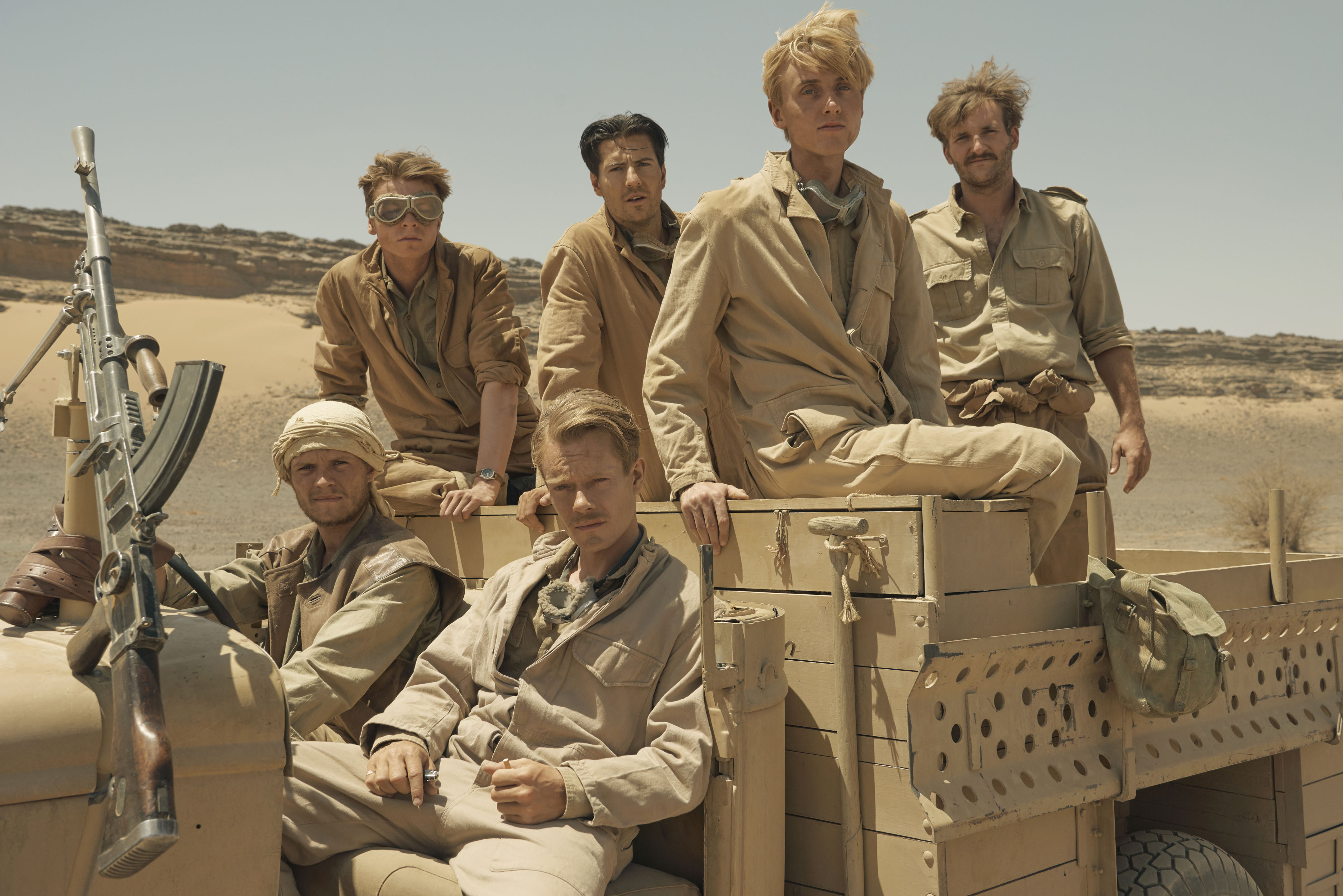
Will there be a season 2 of SAS: Rogue Heroes?
Yes, there is confirmation that SAS: Rogue Heroes will return for season 2 it was announced at the end of the final episode of Season 1. As series one came to a close on BBC One, its recommission was announced via a specially inserted ‘TO BE CONTINUED’ end caption, as the screen froze on Paddy Mayne (Jack O’Connell) - now in charge of our Rogue Heroes - and the credits rolled.
The BBC confirmation comes after it was reported by LadBible that Steven Knight has spoken about plans for future seasons of the show. He told the publication he would like at least 3 more seasons, taking viewers to the end and beyond, of Ben Macintyre's source material. He said "We're gonna go another three [seasons]. We're gonna to take it to after the end of the Second World War and then see what happens, because the story just keeps it going… and it just gets more and more incredible."
He also hinted that the the storyline could include elements of another Macintyre book, Colditz: Prisoners of the Castle. This covers the history of the camp where Stirling was detained. Knight continued "We might break away and do Colditz as well - [Julius] Green meets [David] Stirling", referring to Captain Julius Morris Green - a Scottish prisoner of war who worked as a spy for MI9 during his time at Colditz. ,
Related BBC Features:
- Who is Molly on Strictly Come Dancing?
- Where is Katie Thistleton from and who is she married to?
- Who is Victoria Fritz on BBC Breakfast and does she have a husband?
- Who is Karen Hauer married to? All you need to know about the Strictly Come Dancing star
- Who is Tony Adams' wife and does he have kids? All you need to know about the Strictly star
- Who is Hamza Yassin on Strictly Come Dancing and is he married?
- Strictly Come Dancing live tour 2023: Who will be there and how to get tickets
- Am I Being Unreasonable? ending explained: The plot twist finale of Daisy May Cooper’s BBC comedy mystery
- Bloodlands season 2 ending explained: What happened in the finale of the James Nesbitt police drama?
Video of the Week

Lucy is a mum-of-two, multi-award nominated writer and blogger with six years’ of experience writing about parenting, family life, and TV. Lucy has contributed content to PopSugar and moms.com. In the last three years, she has transformed her passion for streaming countless hours of television into specialising in entertainment writing. There is now nothing she loves more than watching the best shows on television and sharing why you - and your kids - should watch them.
-
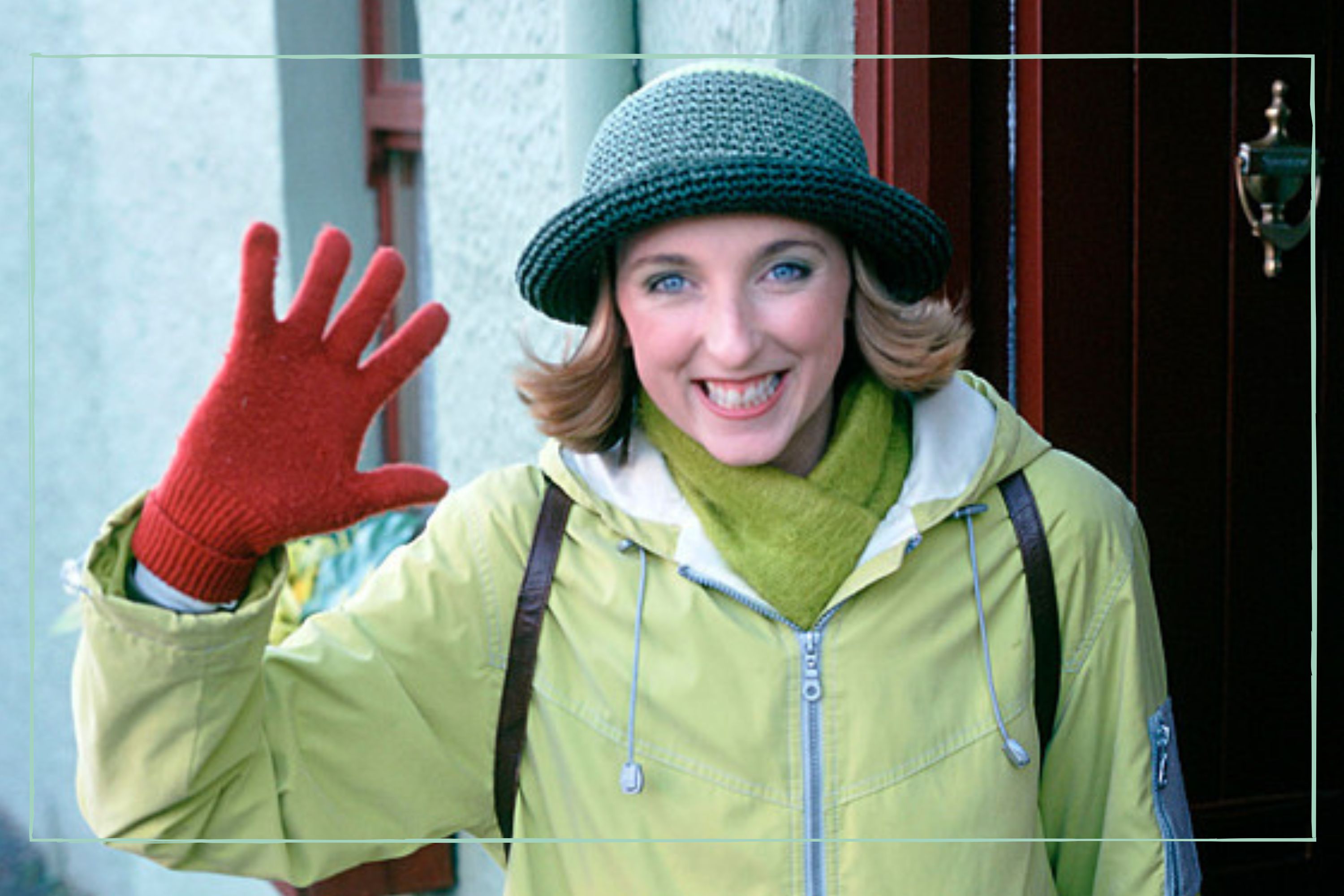 Balamory is back after two decades - why we can’t wait for the reboot of the iconic BBC series
Balamory is back after two decades - why we can’t wait for the reboot of the iconic BBC seriesWhat's the story in Balamory? Now you can find out, as the BBC announces the return of the beloved children's series nearly 20 years after the final episode aired.
By Lucy Wigley Published
-
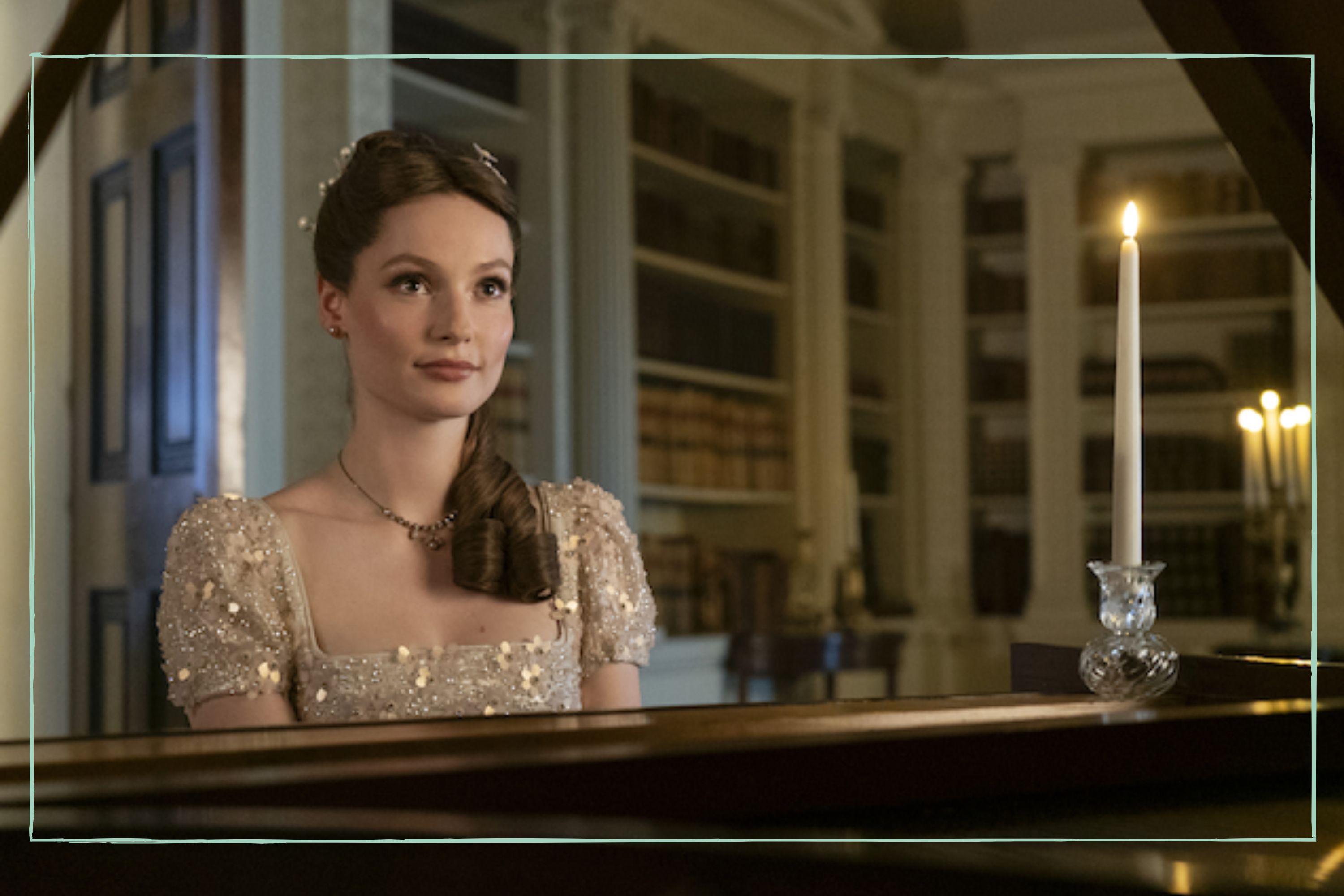 Is Francesca in Bridgerton gay? With more great representation in the show, this expert shares how to start the conversation around sexuality with your teen if they’re watching
Is Francesca in Bridgerton gay? With more great representation in the show, this expert shares how to start the conversation around sexuality with your teen if they’re watchingIs Francesca in Bridgerton gay? It's a question many have asked, and you might need to have conversations around sexuality with your teen if they’re watching.
By Lucy Wigley Published
-
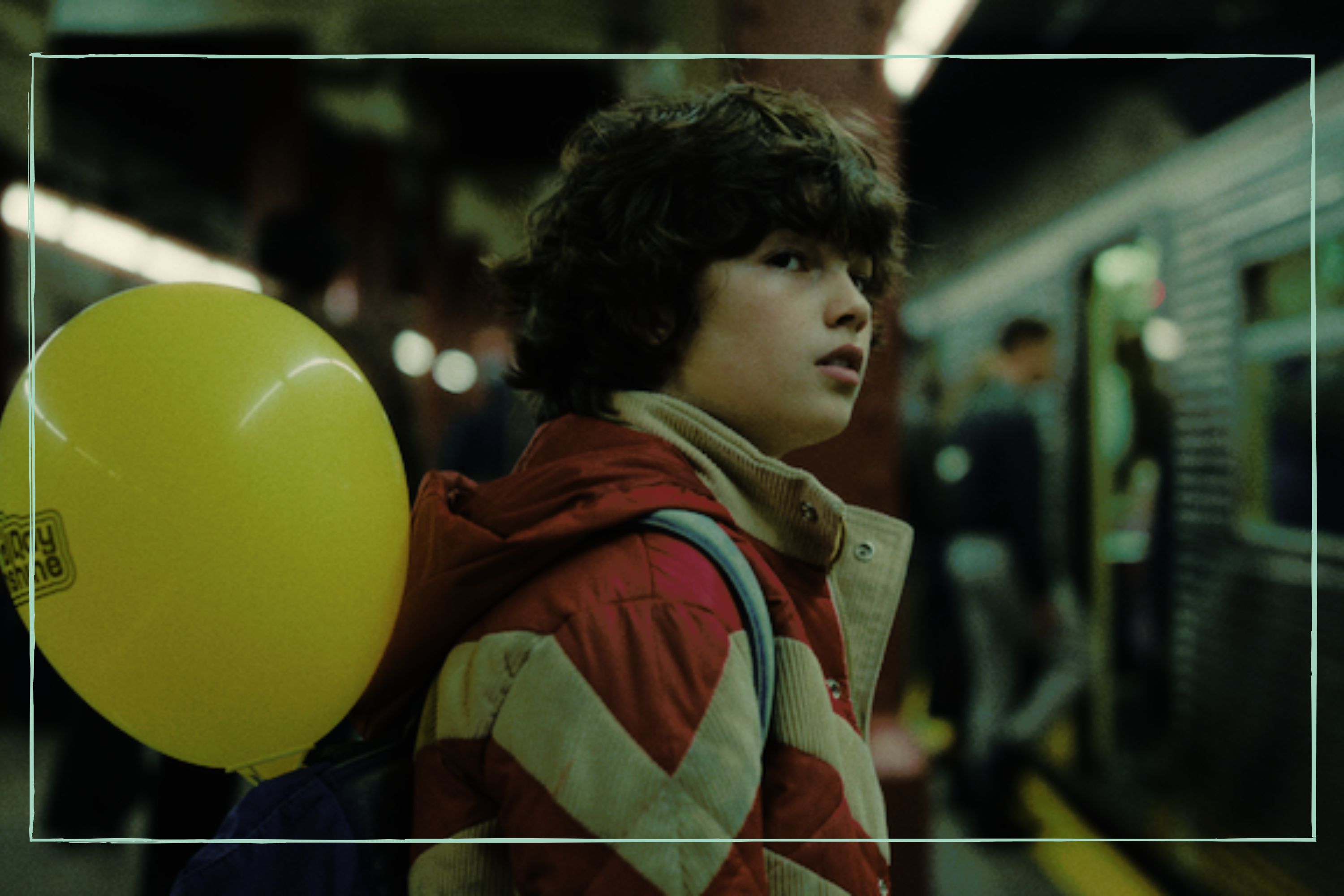 Is Eric a true story? Benedict Cumberbatch lives every parent’s worst nightmare in new Netflix show
Is Eric a true story? Benedict Cumberbatch lives every parent’s worst nightmare in new Netflix showIs Eric a true story? Every parent’s worst nightmare plays out in Netflix's latest show, against a backdrop of 80s New York grappling with AIDS and racism.
By Lucy Wigley Published
-
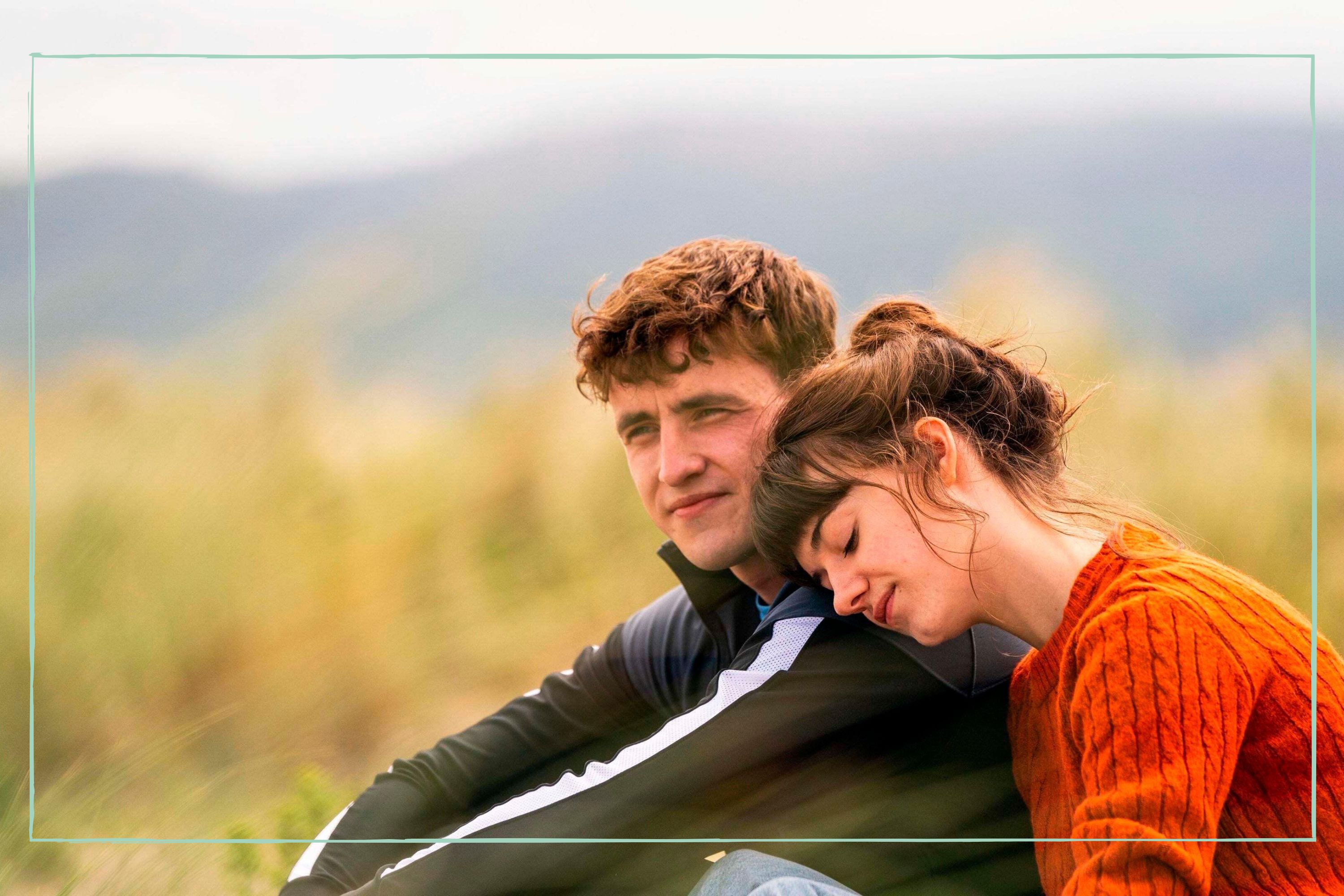 Normal People season 2 rumours are circulating, and we have our own Marianne and Connell 'first love' stories to share
Normal People season 2 rumours are circulating, and we have our own Marianne and Connell 'first love' stories to shareNormal People season 2 rumours are flying around, and we have our own Marianne and Connell moments to share - because everyone remembers their first heartbreak.
By Lucy Wigley Published
-
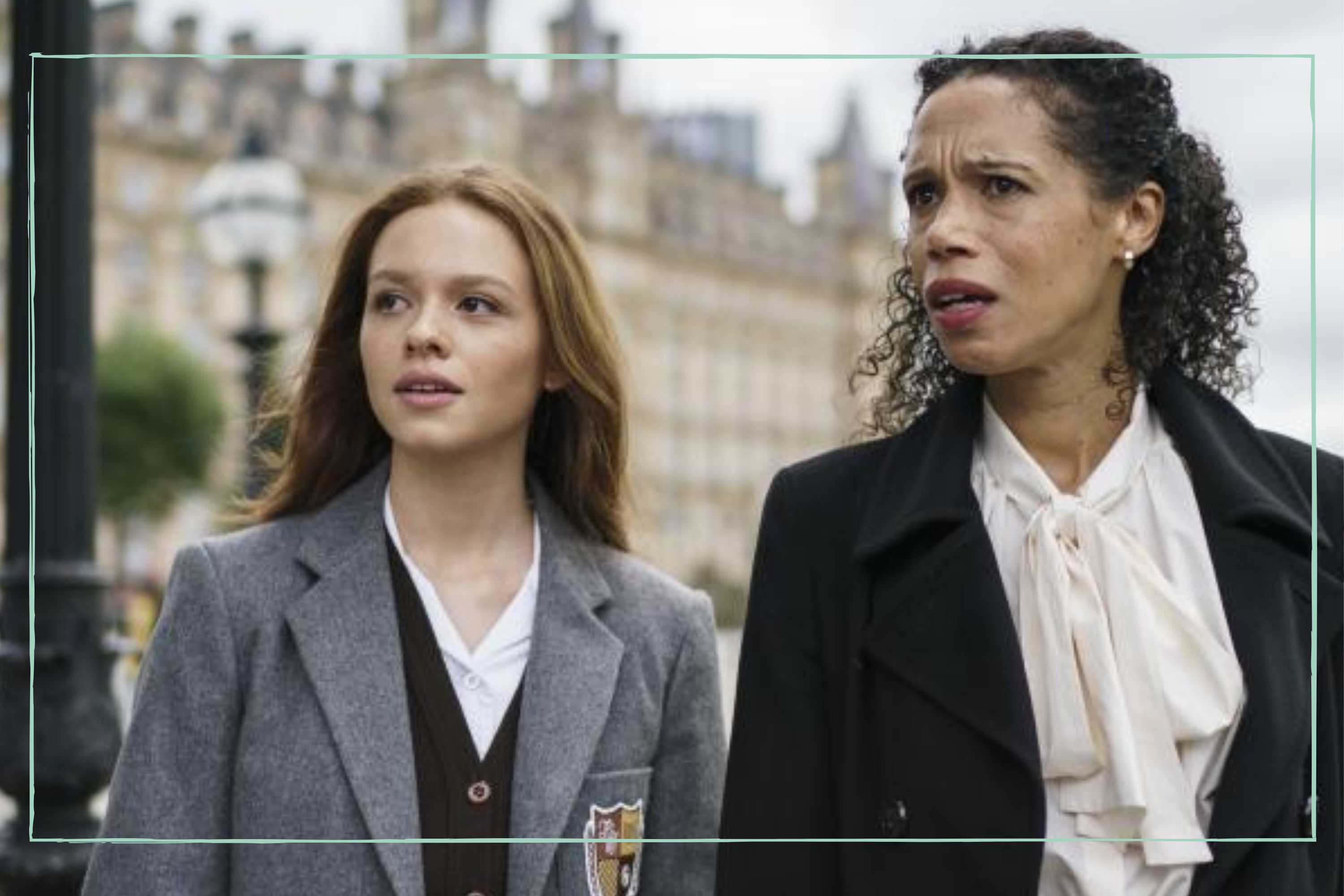 Channel 4 drama The Gathering explores 'toxic teenagers and their even more toxic parents' in an online world dominated by social media
Channel 4 drama The Gathering explores 'toxic teenagers and their even more toxic parents' in an online world dominated by social mediaNew Channel 4 drama explores the challenges of impossible standards set by social media, and how parents themselves become toxic in their need to protect their kids.
By Lucy Wigley Published
-
 Is Brandy pregnant? Bluey fans think the Heelers could be about to welcome a new cousin following the season 3 finale
Is Brandy pregnant? Bluey fans think the Heelers could be about to welcome a new cousin following the season 3 finaleEagle-eyed Bluey viewers are wondering if Aunt Brandy is pregnant, following a touching moment in the season three finale.
By Ellie Hutchings Published
-
 Is Bluey ending? What we know about the rumours around the kids' cartoon, as the Heelers put their house up for sale
Is Bluey ending? What we know about the rumours around the kids' cartoon, as the Heelers put their house up for saleBluey's producer has shared an update on the show's future
By Ellie Hutchings Published
-
 CoComelon has been accused of being 'overstimulating' - the experts explain why it's ok to let your kid watch the popular cartoon
CoComelon has been accused of being 'overstimulating' - the experts explain why it's ok to let your kid watch the popular cartoonCoComelon is adored by kids around the world, but some experts have shared reasons they don't think children should be watching - we look at both sides of the argument.
By Lucy Wigley Published